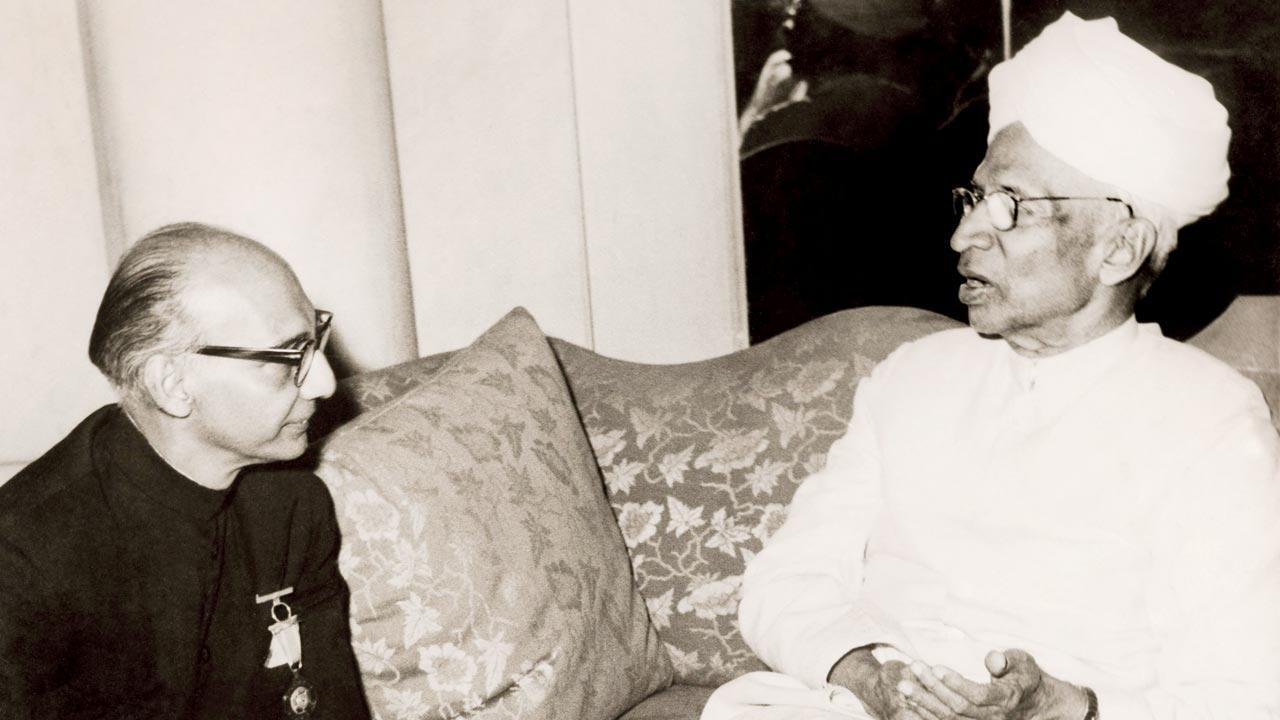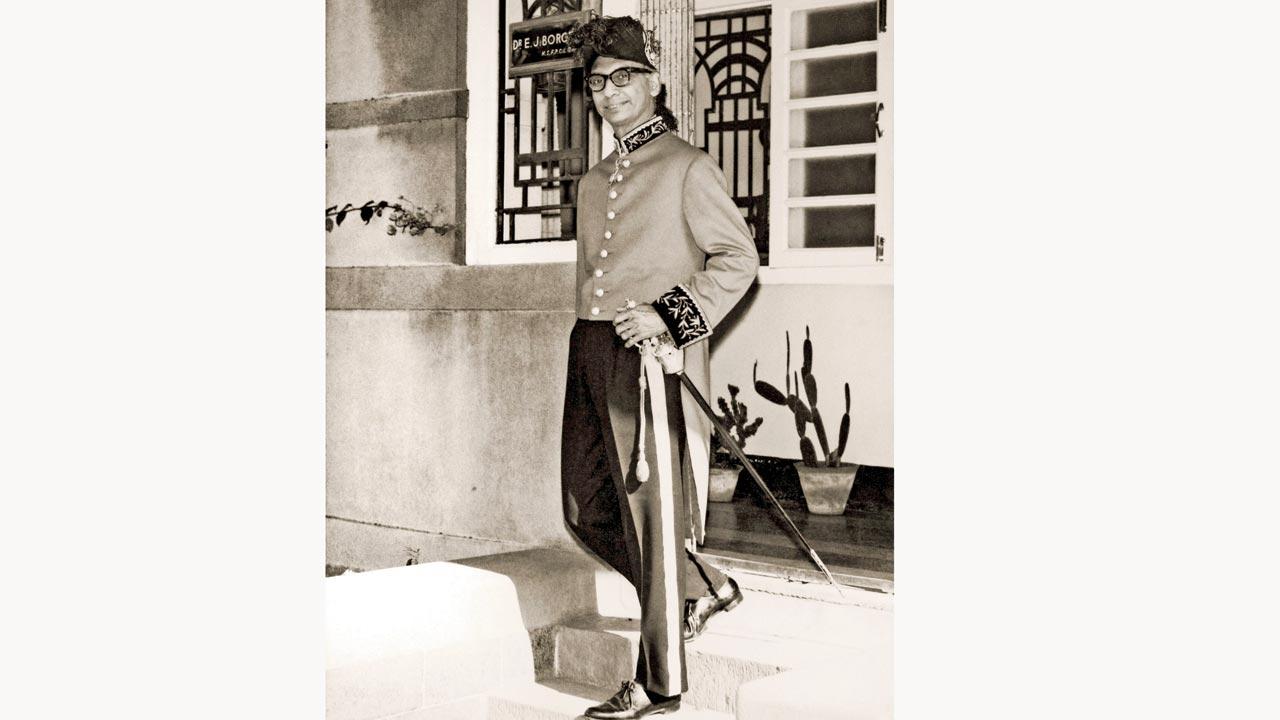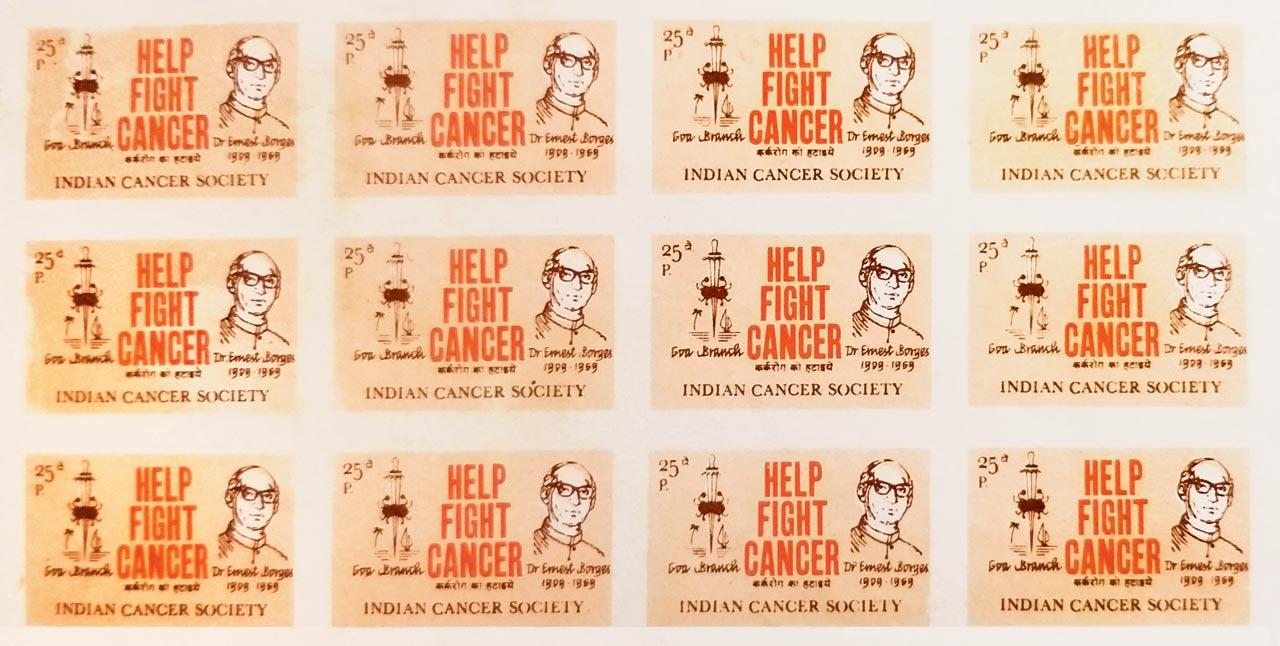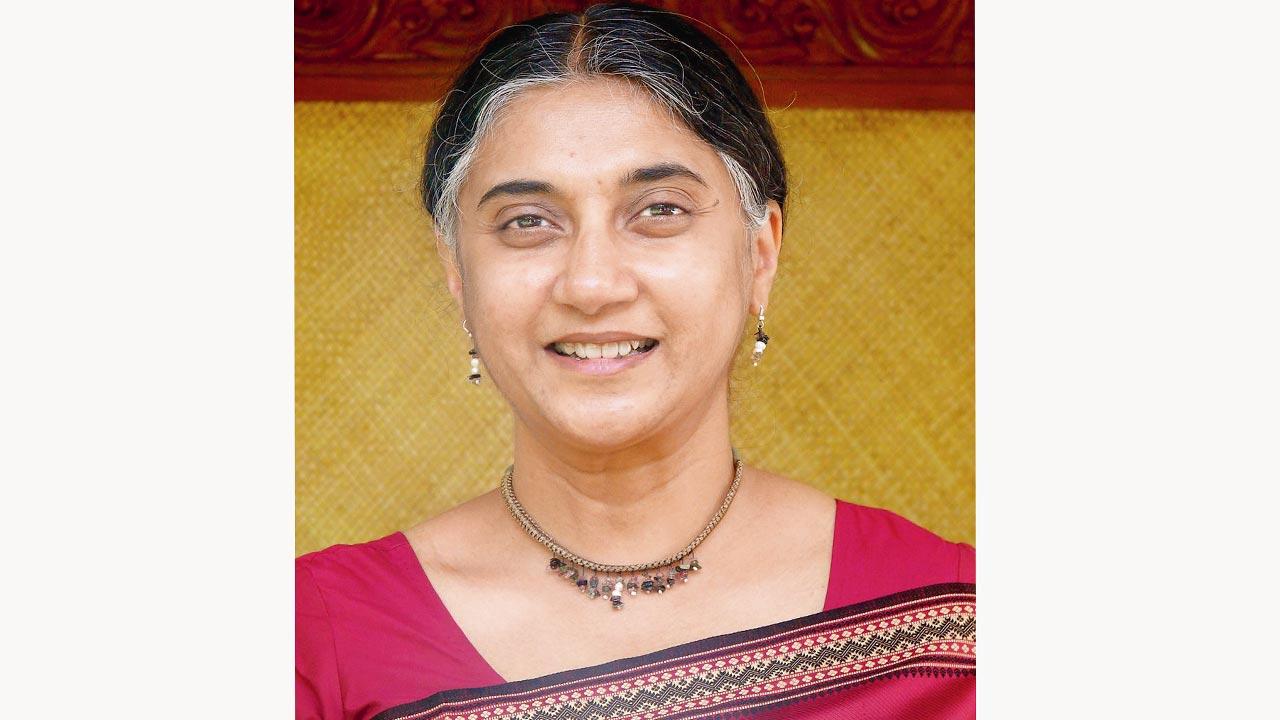Daughter of late celebrated Mumbai cancer surgeon spends over a decade researching in her quest to document her father’s prodigiousness

Ernest in conversation with Sarvepalli Radhakrishnan, President of India, after receiving the Padma Shri, in 1966
Sharing a famous and not-so-common surname is great responsibility. This writer realised this soon after moving to Mumbai 20 years ago, to pursue her higher education. On the first day of class at St Xavier’s College, our English professor, while taking the attendance, halted briefly, when she called out this writer’s full name. A moment’s hesitation was followed by a question in the sheer spirit of enquiry: “Dear girl, are you related to Dr Borges?”
ADVERTISEMENT
It’s a question that has continued to chase me all along, sometimes with the name ‘Ernest’ prefixed for specificity. I may have initially refused any allegiance, but over time, the need to give an appropriate response weighed heavily. “No,” I’d say, before carefully punctuating it with “...unfortunately”.
 Ernest in regalia on receiving the Papal Honour of Privy Chamberlain with Cape and Sword, photographed on the steps of his home in Shivaji Park. Pics Courtesy/Borges Family Archives
Ernest in regalia on receiving the Papal Honour of Privy Chamberlain with Cape and Sword, photographed on the steps of his home in Shivaji Park. Pics Courtesy/Borges Family Archives
The late Dr Ernest Joachim Joseph Borges’s legacy is not one that I can claim to own, but have nonetheless, learnt to value. His contribution to the fields of science and medicine are the stuff of legend (and lore). He was cancer surgeon at a time when radiation therapy and chemotherapy were still at a nascent stage, and surgery the only hope for those afflicted by the disease. His nerve centre was Parel’s Tata Memorial Hospital, where he dedicatedly worked as chief surgeon for nearly three decades—he served as director and superintendent during the last years of his life—laying the foundation for cancer treatment in the country. A 1966 Padma Shri recipient, Dr Borges’s self-effacing nature left him untouched by his own celebrityhood, so much so that his feats lay buried mostly in the memories of those who knew him and the rich medical literature he left behind. “My father didn’t like to be talked about,” his youngest daughter and professor at the Centre for Ecological Sciences, Indian Institute of Science in Bengaluru, Renee Maria Borges shares, when we meet her over a video call. “There were journalists who wanted to write about him, but he would extract a promise [from them] to not be written about.” He passed away in 1969, fighting the same disease he spent a lifetime treating. Perhaps now, after all this time, Renee feels that her father wouldn’t mind his story being told.
Her just-released book, In Ernest Quest: EJ Borges, Legendary and Revered Cancer Surgeon (CinnamonTeal Publishing), draws from interviews with friends, colleagues and family, and excerpts from her father’s writings and talks, to paint the story of a medical genius who was also devoted to family and faith. “He died when I was only 10; I had very little time with him.” In 2009, when Tata Memorial celebrated his birth centenary with a one-day symposium on Dr Ernest Borges as a mentor, Renee came on board to help edit pieces by prominent doctors that would be read out at the event. “While going through these pieces, and of course later attending the symposium, it became clear to me that there was a lot that I didn’t know about him, and the accolades he received.” His expertise in esophageal cancer surgery, when only a few dared to perform it, had made him one of the most sought after in Bombay and outside. “The Tata Memorial Hospital had collated a few of his important papers, many of which dealt with the esophagus. I had missed learning so much about my father, and that’s really when the quest began.”
 Cancer seals or stamps released by the Goa Branch of the Indian Cancer Society on September 7, 1971 (Ernest’s birth anniversary)
Cancer seals or stamps released by the Goa Branch of the Indian Cancer Society on September 7, 1971 (Ernest’s birth anniversary)
Dr Borges’s practice in India was one of pure chance. Born in then Bombay, 1909, to Cajetan Francis Borges and Inez de Nazaré, Borges first schooled at St Theresa’s High School in Girgaum and was later educated at St Xavier’s High School and College in Dhobi Talao. After pursuing his MBBS from Grant Medical College, and later, an MS degree with distinction from the University of Bombay, he left for England to pursue his Fellowship of the Royal College of Surgeons (FRCS). But he developed bilateral lung effusion or pleurisy as a complication of tuberculosis. Though he was treated at the Brompton Chest Hospital in London, surgeons in England, says 63-year-old Renee, were prohibited from operating after contracting tuberculosis. “He had to return to India without completing his FRCS degree. Back then, you could only give patients palliative care by sending them to a hot and dry climate. Bombay’s weather wasn’t suitable for him, and so he relocated to Ahmednagar [to allow his lungs to heal],” shares Renee. “He practiced as a civil surgeon [at the Bombay Medical Service] for several years. My father was really enjoying his life there. He had set up surgery departments and had his own nursing home. But his father [Cajetan] started getting restive, because he felt his son needed to settle down. He came across an advertisement for a position in Tata Hospital, which had just opened back then. His mother [Inez] was sent to Ahmednagar to convince him to come back.”
Borges joined Tata, and was also sent by the hospital in 1945 to complete his FRCS examinations in England and later, to train at the Memorial Hospital, New York. On his return, he married Gracie Soares on April 27, 1946. The couple had six children: Anita, Nina, Rita, Eric, Marie, and Renee—Marie survived only for a day.
There were of course, challenges in piecing together this story, considering how much time had passed, and how many of Dr Borges’ contemporaries, whom Renee would have liked to interview, had passed on. “I had to travel all the way to Guruvayur to meet the nurse who he worked closely with.” What Renee did have, and to this day remains a prized possession, were Dr Borges’s unpublished handwritten speeches for radio shows, and even wedding toasts, and prize distribution ceremonies. “My mother had rescued these sheets from my father’s suit pockets, and preserved them carefully. He was very meticulous, and he would write and rewrite these speeches many, many times. I have written in the book how I have many versions of the same speech.” Renee had collected over hundreds such notes, and while she could only publish extracts of a few, they did give her “insight into my father’s humour”. “Everybody whom I interviewed told me about his spontaneous wit and off the cuff quips that he’d use to relax his patients and even the audience.”
 Renee Maria Borges
Renee Maria Borges
Dr Borges’s association with the Catholic Church also ran deep. He served as president for three terms at the St Luke’s Medical Guild, an organisation of Catholic medical professionals, envisaged by the then Archbishop of Bombay Thomas D’Esterre Roberts. “The guild grappled with pressing medico-moral issues, like organ donation and birth control, or conscientious objectors, because this was the time when India was creating government policies on family planning and sterilisations.” It also published the Catholic Medical Bulletin, a quarterly supplement to The Examiner, a periodical published by the Archdiocese of Bombay. “My father was one of the founding editors.” And from some of the edits and essays in the bulletin, which she was able to procure from the Heras Institute of Indian History and Culture and excerpts of which she was able to publish in her book, Renee says it appeared that her father was a “very practical” man. “The Catholic Church had a strong antipathy towards communism, and indeed, Ernest in many of his speeches, wrote against it. But some years ago, I found Thomas Mann’s The Magic Mountain inscribed to my father by the Communist Party of India. I found this marvelous—that someone could hold a not-so-positive position on communism, and yet be friendly with communists.”
Renne also writes fondly about her father as a family man. Trips to their ancestral home in Dumpem, Ucassaim, Goa, would see long lines of patients waiting for a consult. Their last and most memorable holiday was in Kashmir in 1968, a vacation that Renee writes, was “perhaps his way of saying goodbye to [his wife] Gracie” as it brought back happy memories of their honeymoon in a houseboat on the Dal Lake. “Nobody at the time knew that he was dying of stomach cancer,” says Renne. It was only during the course of her interviews, that she would learn that her father had confided in surgical oncologist Dr Praful Desai and a few friends. “Praful had wanted to operate on him immediately, but my father stalled it saying he had to go on this holiday with his family. He knew that he had about eight months to live, but swore Praful to secrecy, and told my mother that he had a peptic ulcer. He even got a false report to convince her. He had two surgeries, but didn’t recover from the second. I consider this a great exhibition of how one can be stoic.”
To pick up a copy https://www.thedogearsbookshop.com/
 Subscribe today by clicking the link and stay updated with the latest news!" Click here!
Subscribe today by clicking the link and stay updated with the latest news!" Click here!







